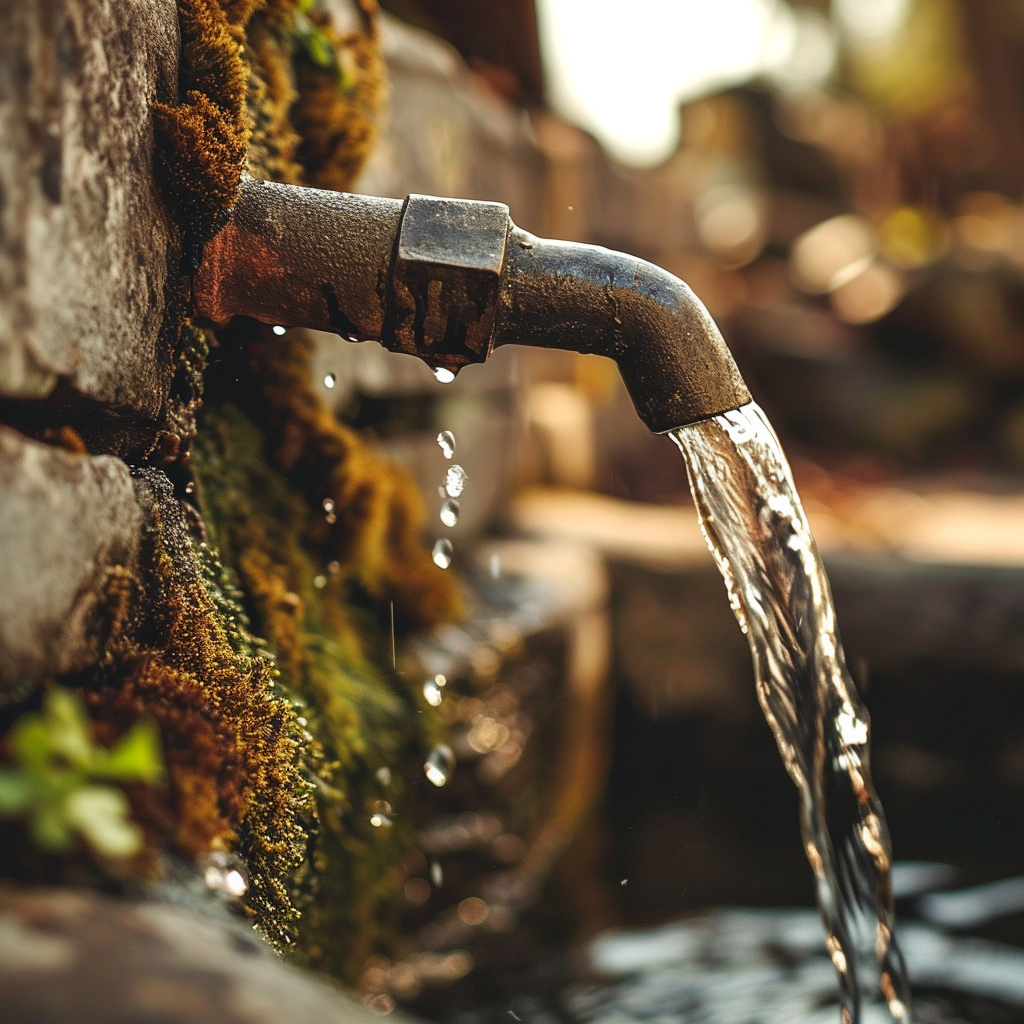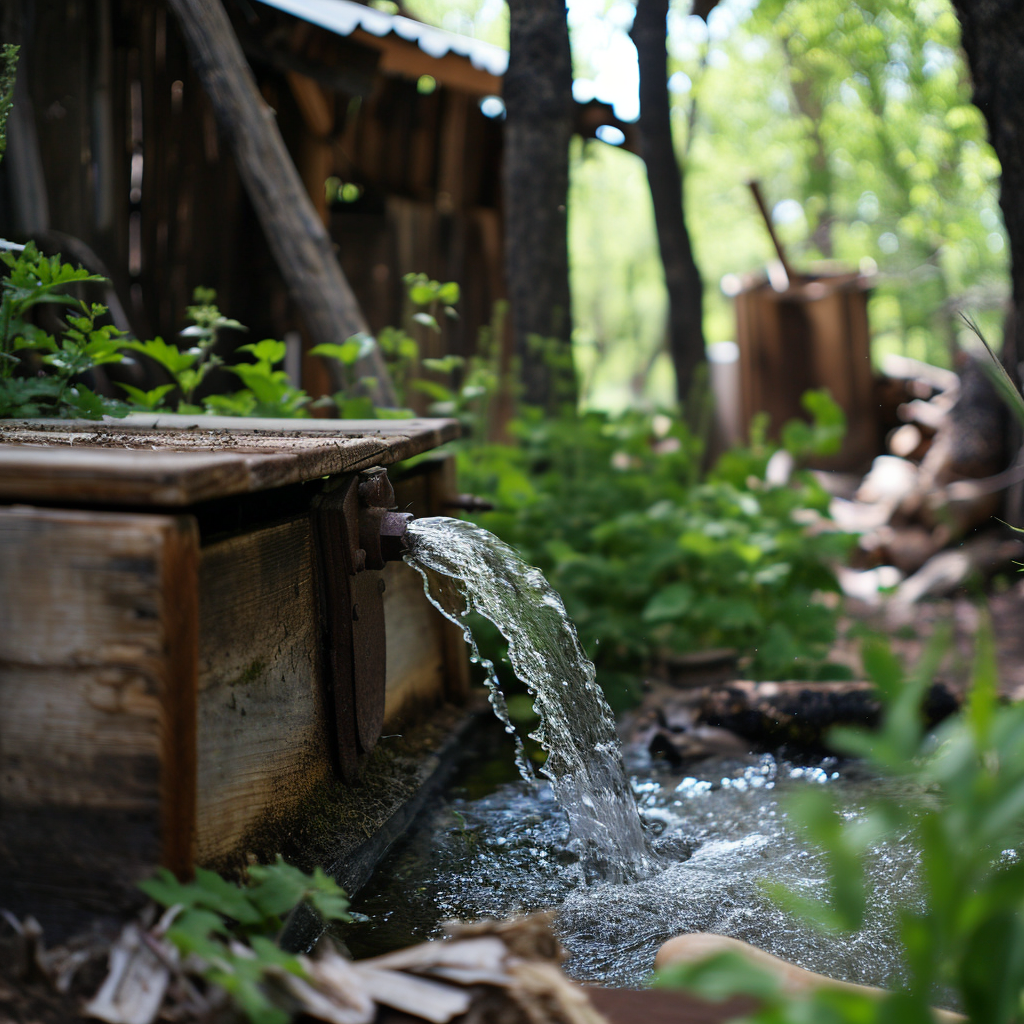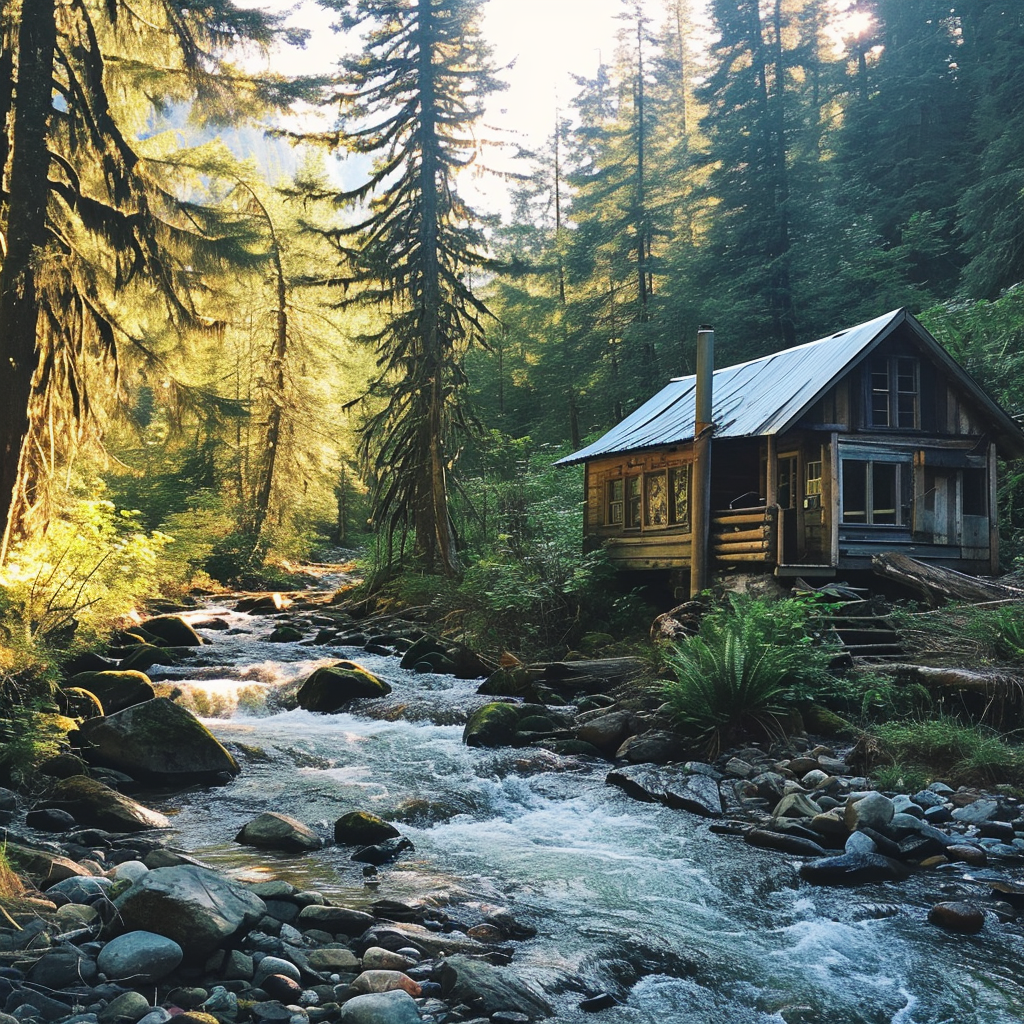Are you tired of relying on the municipal water supply? Do you dream of living off the grid and being self-sufficient? You then might have asked “How do I source my own water?” Well, one of the main challenges you’ll face is sourcing your own water while off the grid. But fear not! In this article, we’ll dive into the different methods and techniques you can use to ensure a steady and sustainable water supply while living off grid. So, let’s get started and explore this fascinating topic further!
Living off grid means being completely independent from public utilities, including water supply. While it may seem daunting at first, sourcing your own water is an achievable and rewarding task. There are several options available, depending on your geographical location, climate, and personal preferences. From collecting rainwater to digging a well, each method has its own advantages and considerations. In this article, we’ll take a closer look at each option and guide you through the process of establishing your own water source.
When sourcing your own water while living off grid, it’s important to learn about water conservation and purification techniques as well. This ensures that you not only have a sufficient supply but also a clean and safe one. We’ll discuss different methods of water conservation, such as installing water-saving devices and reusing greywater, as well as ways to purify water for drinking and cooking purposes. So, whether you’re planning to live off grid full-time or simply looking to reduce your reliance on the municipal water supply, this article has got you covered!
In conclusion, sourcing your own water while living off grid is possible and advantageous. By exploring various methods and techniques, you can establish a sustainable and self-sufficient water supply. From rainwater collection to well drilling, there are options for every situation. Additionally, learning about water conservation and purification ensures both quantity and quality. So, if you’re ready to take the leap into off-grid living, stay tuned for the upcoming article where we will delve further into the exciting world of sourcing your own water!
Understanding Off-Grid Living
Living off the grid refers to a lifestyle where individuals choose to disconnect from traditional utilities such as electricity, water, and sewer systems. Instead, they rely on alternative methods and resources to meet their basic needs, including sourcing their own water. This concept of off-grid living has gained popularity in recent years as people seek to reduce their reliance on traditional infrastructure and become more self-sufficient.
Exploring the Concept of Off-Grid Living
Living off the grid means taking control of your own resources and becoming less dependent on external sources. By sourcing your own water, you are able to ensure your access to clean and reliable water, even in remote areas where traditional infrastructure may not be readily available.
Benefits of Living Off the Grid
Living off the grid offers numerous benefits. Firstly, it allows you to reduce your environmental impact by conserving resources and minimizing water waste. Additionally, it promotes self-reliance and a sense of empowerment as you become less dependent on external systems. Moreover, living off the grid can lead to cost savings in the long run, as you eliminate or significantly reduce water bills.
Importance of Sourcing Your Own Water
Water is essential for survival, making it crucial to have reliable access to clean and safe water when living off the grid. Sourcing your own water ensures that you have a sustainable and consistent water supply, even in remote or off-grid locations.
The Necessity of Access to Water
Access to water is a basic human need, and it becomes even more important when living off the grid. Water is required for drinking, cooking, bathing, sanitation purposes, and maintaining a healthy lifestyle. Therefore, it is essential to have a reliable and sufficient water source to meet these needs.
Challenges Faced by Off-Grid Dwellers
Living off the grid presents unique challenges when it comes to sourcing water. In remote areas, water sources may be scarce, and traditional infrastructure, such as piped water systems, may not be available. Off-grid dwellers often face difficulties in finding suitable and sustainable water sources, as well as managing and treating the water to ensure its safety for consumption.
Methods of Sourcing Water Off-Grid
To source your own water when living off the grid, several methods can be adopted. These methods include collecting rainwater, utilizing natural water sources such as rivers or lakes, and creating a well.

Collecting Rainwater
Rainwater collection is a common method used by off-grid dwellers to source their water. It involves capturing and storing rainwater from rooftops or other surfaces for later use. To implement a rainwater collection system, several basic components are required, such as gutters, downspouts, and storage tanks. Regular maintenance and monitoring of the system are essential to ensure optimal water quality.
Utilizing Natural Water Sources
When living off the grid, alternative water sources such as rivers, lakes, springs, or streams can be utilized. These natural water sources provide a constant supply of water, especially in areas with abundant rainfall. However, it is important to assess the quality of the water and implement appropriate treatment methods to ensure its safety for consumption.
Creating a Well
Another method of sourcing water off-grid is by drilling a well. This involves creating a borehole into the ground to access underground water sources. Well water is generally abundant and can be a reliable source for off-grid dwellers. However, factors such as the groundwater level, location, and quality should be considered before drilling a well. Regular maintenance and proper utilization are necessary to ensure the longevity and optimal functioning of the well.
Implementing Sustainable Water Usage
Conserving water is crucial when living off the grid to ensure the long-term sustainability of your water supply. Implementing water conservation techniques such as using low-flow fixtures, fixing leaks promptly, and practicing mindful water usage habits can significantly reduce water consumption. Proper water management strategies, such as rainwater harvesting and graywater recycling, can also be employed to maximize water efficiency.
Utilizing Solar Power for Water Systems
Solar pumping systems provide an efficient and sustainable solution for accessing water off-grid. These systems utilize solar energy to power water pumps, enabling off-grid dwellers to draw water from wells or other water sources. Solar-powered water systems offer several benefits, including reduced reliance on conventional energy sources, cost savings, and environmental friendliness.
Alternative Water Sources for Off-Grid Living
In addition to rainwater collection, natural water sources, and wells, off-grid dwellers can explore various innovative water filtration and purification systems. These systems ensure that water from any source, including rivers or lakes, can be treated to meet safe drinking water standards. Additionally, advancements in rainwater harvesting technologies have made it easier and more efficient to collect and store rainwater.

Conclusion
Living off the grid and sourcing your own water can offer numerous benefits, ranging from self-sufficiency and cost savings to reduced environmental impact. By understanding the importance of water and exploring various methods of sourcing water off-grid, you can embrace the advantages of off-grid living while ensuring access to clean and sustainable water. So, take control of your water sources and enjoy the freedom that comes with living off the grid.




